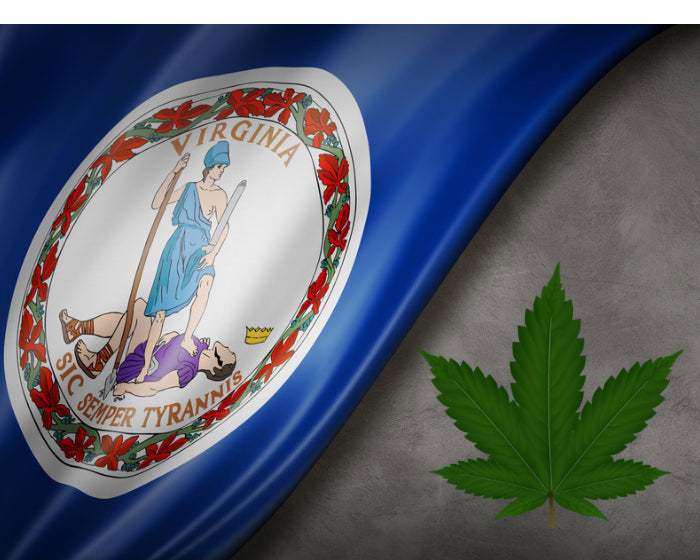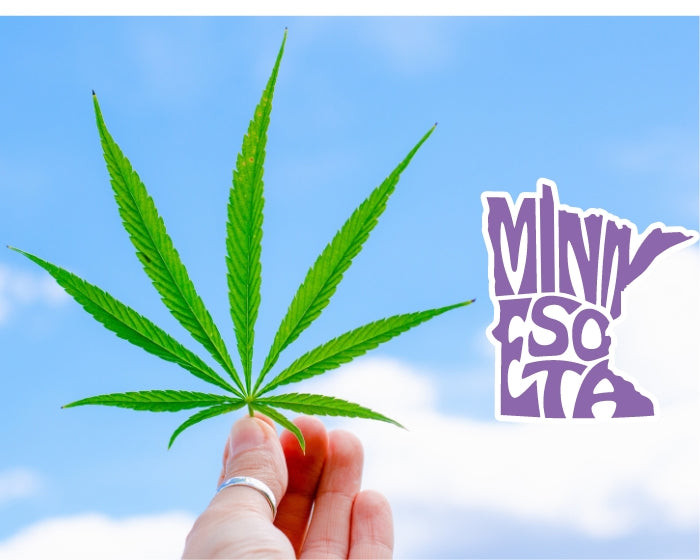A new measure designed to regulate the hemp industry in the Sunshine State radically poses an existential threat to the still young and flourishing market.

The American systems of free market capitalism and Democratic governance have been the envy of much of the world for the better part of a century. Following the Civil War's carnage, the Industrial Revolution explosion combined with the still relatively novel idea of a legally elected representative government by and for the people led to the emergence of America as a new and wildly successful world power.
With the outbreak of two world wars and the economic disaster of the Great Depression, that American "might" was sorely tested. However, with the help of entrepreneurial ingenuity, solid leadership by political titans like President Franklin Delano Roosevelt, and the renowned work ethic of the American people, the United States emerged as the new and unstoppable superpower of the 20th century.
Flash forward to the current American political and economic landscape, and the picture is less epic and enviable than it once was. The "boom" that followed World War II, establishing the U.S. as the most prolific and overwhelming industrial and military power since the Roman Empire, has steadily eroded and given way to a world map where new players like China have begun to supplant American dominance.
However, one trait that makes America such a unique and rootable entity is its resiliency and unflappable ability to continue to reinvent and reimagine itself. Whether through tech innovations or cultural revolutions, the United States has maintained its global success and appeal mainly on the backs of relentless and inspirational small business owners and entrepreneurs.
The relatively young and burgeoning hemp industry is a classic example of that American small-business spirit and magic. Following the passage of the 2018 Farm Bill, which took the hemp plant off the Controlled Substance List and made it legal to once again cultivate hemp and manufacture and sell hemp-derived products, the American hemp-based market (mostly from products like CBD) has exploded with its 2021 value estimated between $7 and $12 billion.
One of the states that has benefitted the most from the new and exciting sector is Florida. With ideal agriculture conditions, plenty of land to cultivate the plant and no shortage of aspiring hemp-based product manufacturers and retailers ready to seize the potentially lucrative economic opportunities afforded by the hardy and multi-faceted plant, America's most tropical state has embraced hemp as a much-needed source of new jobs, alternative plant medicines and tax revenue.
However, all that newfound success could disappear if a new law proposed by state lawmakers goes into effect. According to the Florida Phoenix, a new measure has been introduced at the State House in Tallahassee that could effectively eviscerate the still-growing and fragile hemp industry in Florida. House Bill 1475 seeks to restrict the amount of THC in hemp-derived products to no more than 5 MG per serving or 50 MG per package. It would also prohibit any individuals under the age of 21 from buying those products.
In addition, the proposed measure would enforce packaging, labeling and testing requirements for hemp-based items, require hemp product containers to be "not attractive to children," and have a design that minimizes exposure to extreme cold and hot temperatures. However, the stipulation drawing the most concern from industry stakeholders and advocates is the limits on dosage and package size.
As Matt Schwarmann, Vice President of Outpost Brands, a Daytona Beach hemp manufacturer with 142 employees, explains, "Every vape and cartridge would all be eliminated, and when you have gummies of such small efficacy doses, less than 5 milligrams – that's not enough for the majority of people who are using it strictly as therapeutic uses."
"Every vape and cartridge would all be eliminated, and when you have gummies of such small efficacy doses, less than 5 milligrams – that's not enough for the majority of people who are using it strictly as therapeutic uses."
- Matt Schwarmann, Vice President of Outpost Brands
According to Schwarmann and other industry experts, the proposed dose and packaging limitations would effectively outlaw every hemp product on the market. Others like former state Agriculture Commissioner Nikki Fried, now Florida Democratic Party chair, take it further by saying, "The exact intent of this bill is to eliminate 189,000 jobs and 10,000 small businesses."
"The exact intent of this bill is to eliminate 189,000 jobs and 10,000 small businesses."
- Nikki Fried, Former Florida Agriculture Commissioner
The reasoning behind the introduction of the new bill by state legislators is the legitimate concern over the flood of largely unregulated hemp-derived products showing up in just about every gas station and convenience store up and down the Florida peninsula, in particular, the large number of items containing the politically toxic delta-8 THC isomer.
Delta-8 is a naturally occurring cannabinoid in the hemp plant. Its more famous cousin is the delta-9 THC variant that most people associate with the "high" achieved while ingesting cannabis. Delta-8 has mild intoxicating effects but exists in minimal amounts in hemp. However, by chemically manipulating CBD (also produced from hemp), inventive hemp business owners have used a legal loophole in the 2018 Farm Bill to create products containing higher amounts of delta-8 that have generated potentially strong and dangerous intoxicating effects.
As a result, over 20 states have passed legislation severely restricting or banning products containing delta-8. This new law primarily aims to go after those products and create a safety net for consumers. During a press conference last week to discuss the proposed measure and the reasoning behind its necessity, Florida Agriculture Commissioner Wilton Simpson attempted to explain why the bill is vital.
He said, "Some will say that this bill will end the hemp industry. Let me be clear – the current wild, wild west situation, selling anything to anybody, is going to end. We will close the loopholes in state law being exploited to sell euphoric recreational cannabis products without restrictions."
"Some will say that this bill will end the hemp industry. Let me be clear – the current wild, wild west situation, selling anything to anybody, is going to end. We will close the loopholes in state law being exploited to sell euphoric recreational cannabis products without restrictions."
- Florida Agriculture Commissioner Wilton Simpson
Many hemp business owners in Florida agree with Simpson and applaud certain aspects of the legislation. One of those individuals is Carlos Hermida, owner of Chillum Glass Gallery and Hemp Dispensary out of Ybor City in Tampa. Hermida and many of his fellow hemp vendors agree with restricting hemp product sales to only those 21 and older. They also approve of the packaging requirements in the measure.
However, Hermida believes the THC limits set by the new bill will ultimately hurt those who have become reliant on the products and drive them to the dangerous and still highly illegal black market. Other hemp advocates and industry experts have a much more cynical take on the highly restrictive legislation.
Holly Bell served as Florida's first and only director of cannabis in the Florida Department of Agriculture and Consumer Services from 2019 to 2022. She believes the bill would create a highly suspect and unfair economic advantage for Florida's 22 medical marijuana companies. Many of those businesses own hemp companies along with their legally licensed marijuana organizations. If the new law were to go into effect, they would benefit most from the demise of smaller hemp business owners.
This blatant disregard for an industry that employs over 100,000 people and is responsible for close to $15 billion in economic activity cannot be allowed in the opinion of a growing number of influential state political leaders.
Rep. Rick Roth (R-Palm Beach) expressed that sentiment at the House Agriculture, Conservation and Resiliency Subcommittee last Monday: "I think there's a dangerous precedent – it's called a medical marijuana monopoly," Roth said. "We don't want that. We want the hemp industry to be able to provide good service to people. We do not want it all to go (to) the black market."
"I think there's a dangerous precedent – it's called a medical marijuana monopoly," Roth said. "We don't want that. We want the hemp industry to be able to provide good service to people. We do not want it all to go (to) the black market."
- Rep. Rick Roth (R-Palm Beach)
House and Senate leaders are still meeting with all concerned and impacted parties before further movement on their companion measures. It appears that calmer and more reasonable heads may prevail in this latest battleground over how to properly and safely regulate the hemp product market. Congress may also have a say in how all this eventually will play out when it begins deliberations over the 2023 Farm Bill up for renewal later this year. The stakes continue to rise for an industry that is fast becoming too big to fail.




























